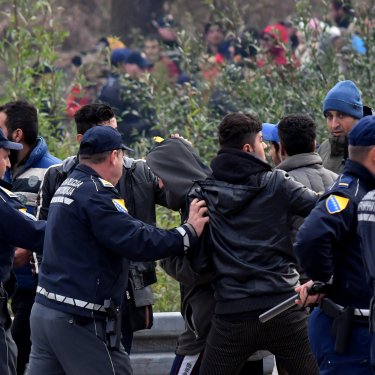Bosnia and Herzegovina: Republika Srpska public order bill would curb reporting freedom

Reporters Without Borders (RSF) calls on the parliament of Republika Srpska, the part of Bosnia and Herzegovina with Serbian majority, to reject proposed amendments to a public order law that would penalize journalists who “disrupt” police operations.
The amendments, which the Republika Srpska’s national assembly is due to consider tomorrow, are badly worded and would hamper journalists’ work, restricting the freedom to inform, RSF said.Under the proposed amendments, reporters could be fined up to 750 euros and jailed for up to 60 days if, without prior permission, they photographed or filmed police officers or other public officials performing official duties.
The parliamentarian who proposed the amendments says their aim is to simply to establish more precise penalties for violations of the public order law, but RSF is concerned about the vagueness of the proposals, and the government’s failure to provide any explanation of what constitutes “disrupting and obstructing the work of officials.”
In practice, the proposed amendments would give the police and other officials disproportionate discretionary powers to punish journalists. Opposition to the amendments is all the greater because many journalists were arrested or otherwise harassed while covering a “Justice for David” protests about a flawed investigation into a young man’s death that was widely blamed on the police.
“We call on the Republika Srpska’s national assembly to reject these amendments, which violate international standards and pose a serious threat to reporting freedom,” said Pauline Adès-Mével, the head of RSF’s European Union and Balkans desk. “The role of journalists all over the world is to provide public interest reporting without the need for prior consent from the police or any other public body.”
Ranked 62nd out of 180 countries in RSF's 2018 World Press Freedom Index, Bosnia and Herzegovina would do well to note the reaction in Spain to the adoption of a “gag law” in 2015 that penalized taking or disseminating photos that “defame” police officers. The outcry was such that the controversial articles were finally repealed after Pedro Sánchez became prime minister in 2018.



